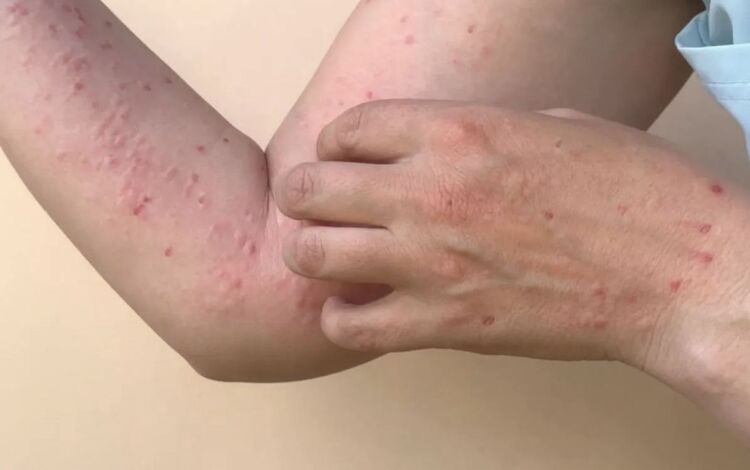The Department of Health (DOH) has confirmed the first case of mpox (formerly known as monkeypox) in the Philippines for this year, following intensified surveillance after the World Health Organization (WHO) declared mpox as a Public Health Emergency of International Concern (PHEIC). This case, reported on August 18, 2024, marks the 10th laboratory-confirmed case of mpox in the country.

The patient is a 33-year-old male Filipino with no recent travel history outside the Philippines. However, he had close, intimate contact with someone three weeks before his symptoms appeared. The DOH reported that the individual began experiencing symptoms more than a week ago, starting with a fever, followed by a distinct rash four days later. The rash appeared on his face, back, nape, trunk, groin, as well as on his palms and soles.
The patient sought medical attention at a government hospital where specimens were collected from his skin lesions. These specimens were tested using a real-time polymerase chain reaction (PCR) test, which confirmed the presence of Monkeypox viral DNA.
This case is the first to be reported since December 2023, when the last known case was recorded. All previous cases have recovered after receiving appropriate care and isolation.
In response to this new case, Health Secretary Ted Herbosa has ordered the expansion of testing centers across the country, including in Cebu, to enhance early detection and control of pox. Herbosa emphasized that implementing border controls against mpox would be impractical, as the virus is already present in the country.
“It is immaterial to have border control because we already have 10 cases, including one with no history of travel,” Herbosa said during a press conference. “Implementing border controls would only complicate travel without effectively containing the disease.”
Although no mpox-related deaths have been reported in the Philippines, there have been a few fatalities in Africa, primarily among individuals with co-morbidities such as HIV and other illnesses.
Herbosa reassured the public that mpox is not as dangerous as COVID-19, as it primarily spreads through intimate or close contact and is not airborne. Nonetheless, the DOH is ramping up surveillance efforts to prevent further spread of the disease.
“I have instructed for increased testing so that anyone who wants to get tested can do so,” said Herbosa. He also mentioned that re-education for doctors regarding mpox is underway and that more hospitals across the country are prepared to handle suspected cases.
In Cebu, the Vicente Sotto Memorial Medical Center (VSMMC) has been designated as a testing center for mpox. Herbosa emphasized the importance of expanding testing capabilities nationwide to ensure that doctors can promptly diagnose and treat potential cases.
The DOH explained that mpox symptoms typically include a rash or mucosal lesions lasting two to four weeks, along with fever, headache, muscle aches, back pain, low energy, and swollen lymph nodes. The virus spreads through close contact with an infected person, contaminated materials, or infected animals.
“Soap and water can kill the virus. When washing contaminated materials, use gloves,” the DOH advised. Laboratory confirmation of mpox is done by testing skin lesion material via PCR.
The DOH has also provided a list of hospitals where suspected cases can seek testing and care, including the Research Institute for Tropical Medicine, San Lazaro Hospital, East Avenue Medical Center, and the UP-Philippine General Hospital, among others.
Treatment for mpox is mainly supportive, and patients without other illnesses may stay at home after testing positive until all scabs fall off and a new layer of skin forms, typically after two to four weeks. The DOH is currently updating its mpox guidelines to facilitate a more convenient and dignified approach to managing the disease.
Herbosa stressed the importance of maintaining good hygiene to prevent mpox transmission, urging the public to keep their hands clean with soap and water or alcohol-based sanitizers.
“Our health system is working. We can handle the situation and will keep the public well-informed,” Herbosa assured.
